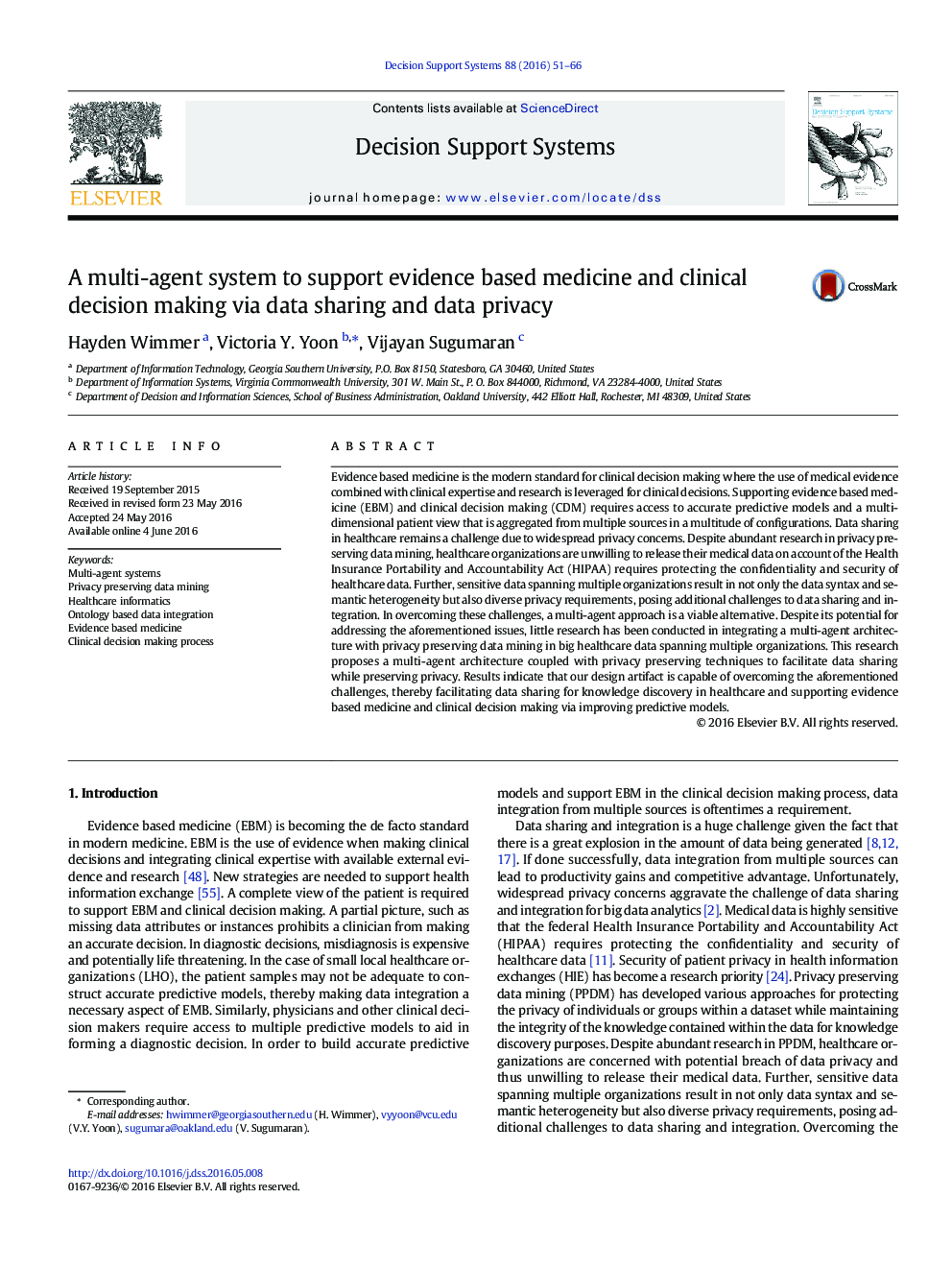| Article ID | Journal | Published Year | Pages | File Type |
|---|---|---|---|---|
| 552372 | Decision Support Systems | 2016 | 16 Pages |
•The paper presents a design artifact, MAPP4MD, to facilitate data integration and sharing while preserving privacy in healthcare.•MAPP4MD is a multi-agent system for healthcare data integration and privacy protection.•Data integration is ontology, lexical, and instance based•Privacy method selection is based on ontology and semantic web rule language•Evaluation is based on the k-Anonymity standard
Evidence based medicine is the modern standard for clinical decision making where the use of medical evidence combined with clinical expertise and research is leveraged for clinical decisions. Supporting evidence based medicine (EBM) and clinical decision making (CDM) requires access to accurate predictive models and a multi-dimensional patient view that is aggregated from multiple sources in a multitude of configurations. Data sharing in healthcare remains a challenge due to widespread privacy concerns. Despite abundant research in privacy preserving data mining, healthcare organizations are unwilling to release their medical data on account of the Health Insurance Portability and Accountability Act (HIPAA) requires protecting the confidentiality and security of healthcare data. Further, sensitive data spanning multiple organizations result in not only the data syntax and semantic heterogeneity but also diverse privacy requirements, posing additional challenges to data sharing and integration. In overcoming these challenges, a multi-agent approach is a viable alternative. Despite its potential for addressing the aforementioned issues, little research has been conducted in integrating a multi-agent architecture with privacy preserving data mining in big healthcare data spanning multiple organizations. This research proposes a multi-agent architecture coupled with privacy preserving techniques to facilitate data sharing while preserving privacy. Results indicate that our design artifact is capable of overcoming the aforementioned challenges, thereby facilitating data sharing for knowledge discovery in healthcare and supporting evidence based medicine and clinical decision making via improving predictive models.
